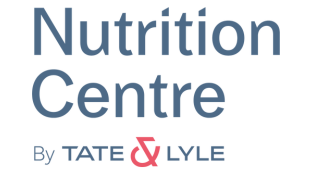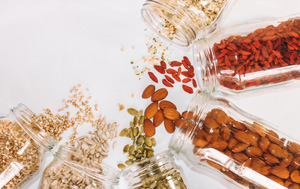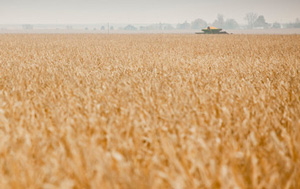Previously considered a niche dietary choice, the rise in interest in plant-based diets and vegan lifestyles in the last 10 years has been notable. Motivation for cutting out animal-based foods is varied but includes concerns about animal welfare and ethics, environmental and sustainability issues, religious reasons and health.
Contributed by Sarah Coe, Nutrition Scientist, and Ayela Spiro, Nutrition Science Manager, British Nutrition Foundation
Since 2008, there has been a 350% increase in the number of self-described vegans in the UK alone. According to a 2018 Gallup poll, 5% of U.S. adults consider themselves to be vegetarian and 3% vegans, and a study of Google search trends on diet concluded that veganism and vegetarianism attract the largest public interest globally. Average annual growth in global food and beverage launches with vegan and plant-based claims grew 21% and 58% respectively between 2015-2019. Although veganism is on the rise, it is still estimated that only around 1% of UK population are vegans (and around 3% are vegetarian). People though are reporting reducing their meat consumption suggesting that, whilst meat is not leaving our shopping lists, it may no longer be seen as the focal point of every meal.
There is, in fact, no one definition of ‘vegetarian’, although this term is commonly used to describe someone who doesn’t eat meat, poultry, fish, shellfish or any by-products of slaughter. There are different forms, with the most common type thought to be lacto-ovo-vegetarians, who eat dairy products and eggs. Some vegetarians will eat fish (pescatarian). Vegans don’t eat any products of animal origin, including dairy and eggs and avoid all animal-derived products including honey and vitamin D3 supplements derived from sheep’s wool. Whilst the term ‘plant-based’ is used synonymously with vegetarian and vegan diets, ‘plant-based’ diets can encompass a range of different dietary patterns that emphasise fruits, vegetables, plant-based proteins and wholegrains.
Well planned and balanced vegetarian and vegan diets can be nutritious and healthy, but such dietary patterns should still follow basic healthy eating dietary guidelines including:
- Fruit and vegetables: at least 5 portions of a variety of different types of fruit and vegetables every day.
- Starchy carbohydrates: wholegrains and high-fibre versions of starchy carbohydrates like wholegrain bread, wholewheat pasta, brown and wild rice and potatoes eaten with skins should be chosen where possible.
- Dairy and alternatives: the inclusion of lower fat/lower sugar dairy (if included in diet) or dairy alternatives (e.g. calcium-fortified soya, rice and oat drinks).
- Beans, pulses, and other plant proteins: a variety of good quality plant protein sources, for example pulses (lentils, beans and peas), mycoprotein, tofu or bean curd, and soya products (e.g. soya mince or textured vegetable protein [TVP]).
- Oils and fats: Some unsaturated oils (e.g. olive and rapeseed or canola oil), and food sources of unsaturated fats like avocado, nuts and seeds. If saturated fats like butter or coconut oil are preferred, these should be used in small amounts.
- Hydration: plenty of fluids (6-8 glasses a day), with water recognised as a great choice.
- Foods to limit: foods high in saturated fats, salt and sugars like cakes, biscuits, fried savoury snacks, pies, pastries and sugar sweetened soft drinks, if included, should be eaten in small quantities and infrequently.
Although a well-planned vegetarian or vegan diet can provide the nutrients we need, if such diets are very restrictive then they can lack balance and increase the risk of nutrient deficiencies. Animal-derived foods are traditionally important contributors of several essential nutrients in a Western-style diet. Those that completely exclude all animal-derived foods should ensure other dietary sources of these nutrients are included.
For example, currently over a third of calcium in the average UK diet comes from milk and dairy foods, so those adopting a vegan diet must obtain calcium from non-dairy sources (e.g. fortified plant-based milk alternatives, calcium-set tofu and green leafy vegetables like kale, bok choi and watercress). As plants are not reliable sources of vitamin B12, vegans will need to ensure that they include B12-fortified foods and/or take vitamin B12 supplements.
Examples of nutrients that may need attention in vegetarian and vegan diets are listed below.
(We define vegetarianism as 'lacto-ovo' when looking at specific nutrients and why they are important.)
Omega 3 fats
Why is it important?
Long-chain omega-3 fats like docosahexaenoic acid (DHA) may help lower the risk of heart disease and contribute to normal visual and brain development.
Vegetarian and vegan food sources:
- Some short chain omega-3 fats known as α-linolenic acid (ALA) found in nuts and seeds (such as flaxseed, chia seeds, and walnuts) and plant oils (such as flaxseed oil, soybean oil, and rapeseed or canola oil) can be converted into long-chain omega-3 fats
- Supplements of long chain omega-3 fats from microalgae
Vitamin B12
Why is it important?
Helps make red blood cells and helps with the normal function of the nervous system.
Vegetarian sources:
- Milk
- Cheese
- Eggs
Vegetarian and vegan sources:
- Vitamin B12-fortified products including yeast extract, lower sugar breakfast cereals and unsweetened dairy alternatives (e.g. soya, oat and nut dairy alternative drinks or vegan spreads)
- Vitamin B12 supplements
Calcium
Helps build health bones and teeth, as well as with the functions of muscles and nerves.
Vegetarian sources:
- Dairy foods (milk, yogurt, cheese)
Vegetarian and vegan sources:
- Some green leafy veg (e.g. kale, bok choy, rocket, okra and watercress)
- Calcium-fortified unsweetened dairy alternative drinks and yogurts
- Almonds
- Sesame seeds and tahini
- Calcium-set tofu (those prepared using calcium)
- Dried figs
Vitamin D
Helps with the absorption of calcium and phosphorus from foods to keep bones, teeth and muscles healthy.
Vegetarian sources:
- Eggs
- Vitamin D-fortified dairy products
- Enriched mushrooms
Vegetarian and vegan sources:
- Vitamin D-fortified fat spreads, lower sugar breakfast cereals and soya drinks
- Vitamin D supplements
- Vitamin D2 is always suitable for vegans, vitamin D3 is usually derived from sheep’s wool but is also available from lichen (a vegan-friendly source)
Iodine
Helps make thyroid hormones, which help keep cells and the metabolic rate (the speed at which chemical reactions take place in the body) healthy.
Vegetarian sources:
- Dairy foods
Vegetarian and vegan sources:
- Seaweed (due to some varieties providing excessive amounts, seaweed should not be eaten more than once a week and not recommended during pregnancy, breastfeeding or for children)
- Iodine supplements
Iron
Helps transport oxygen around the body, also helps normal function of the brain and the immune system.
Vegetarian and vegan sources:
- Pulses (lentils, beans and peas)
- Green leafy veg (e.g. broccoli, spring greens)
- Wholemeal/seeded/brown bread
- Fortified lower sugar breakfast cereals
- Dried fruits (e.g. apricots, raisins)
- Nuts and seeds (e.g. cashews, almonds, sesame seeds, pumpkin seeds)
Iron found in plants (non-haem iron) is less readily absorbed in the body than the iron from animal sources (haem iron). Including vitamin C-rich foods can help increase iron absorption.
Zinc
Helps with making new cells and enzymes, metabolising carbohydrate, fat and protein in food and wound healing.
Vegetarian sources:
- Eggs
- Milk
- Cheese
Vegetarian and vegan sources:
- Wholegrain cereals (e.g. wheatgerm)
- Nuts
- Pulses
There is often a misconception that vegetarians and vegans don’t get enough protein in their diet, but evidence suggests that protein intake is adequate amongst those adopting these dietary patterns. However, it is important to include a variety of good quality plant protein sources such as beans, lentils, chickpeas, tofu, nuts and seeds.
Vegan and vegetarian diets may be perceived as healthy, but it is possible to make poor choices if selecting foods high in saturated fat, salt and free sugars. These can include, foods sold as ‘vegan’ or ‘plant-based’ so checking the food labels is helpful. Some plant foods have attracted ‘health halos’, for example coconut oil and agave syrup, but these may not be healthy if consumed in high amounts (e.g. coconut oil is high in saturated fats, agave syrup is high in free sugars).
Vegetarian/vegan diet and health outcomes
Research suggests that a vegetarian or vegan diet compared to more traditional diets is associated with a reduced risk of certain diseases. Systematic reviews have found associations between the consumption of vegetarian diets and a lower incidence of obesity and coronary heart disease, as well as a reduced blood pressure and blood cholesterol, and lower energy intake. These types of diets tend to be higher in fruit and vegetables, wholegrains, nuts, seeds and pulses, and so are likely to be providing more dietary fibre, whilst being lower in saturated fat and free sugars.
We also know that people who adopt vegetarian diets are often more health conscious overall and adopt other healthier lifestyle factors. For instance, vegetarians are likely to be more physically active, less likely to smoke, consume less alcohol and are more likely to have a higher income and education. This may explain some of the observed health benefits.
Are there any benefits to the environment?
Following a vegetarian or vegan diet can help to reduce the environmental impact of the diet, largely through reducing greenhouse gases and land use, although it is less clear of the impact of such diets on reducing water footprint. However, dietary patterns aligned with dietary guidelines, containing some but less meat and higher amounts of plant-derived foods (vegetables, pulses [beans/lentils], fruit, wholegrains, nuts, seeds) may be a more realistic population goal and would also likely offer environmental benefits and improve population health.
Overall message
Whilst it then is too simplistic to say vegan/vegetarian diets are ‘healthy’ and diets that include meat are ‘unhealthy, taking steps towards a more plant-based way of eating is likely to have health benefits and be more environmentally sustainable.
More information about the British Nutrition Foundation, and about nutrition and health can be found on the Foundation’s website www.nutrition.org.uk
References
Veganism Booms by 350% (2016) https://www.veganlifemag.com/veganism-booms/
Vegan Society Statistics https://www.vegansociety.com/news/media/statistics/worldwide
PHE (2020) National Diet and Nutrition Survey Rolling programme Years 9 to 11 (2016/2017 to 2018/2019) https://ukdataservice.ac.uk/
Kamiński M, Skonieczna-Żydecka K, Nowak JK & Stachowska E. (2020) Global and local diet popularity rankings, their secular trends, and seasonal variation in Google Trends data. Nutrition;79-80:110759.
Gallup Polls. Nutrition and Food https://news.gallup.com/poll/6424/Nutrition-Food.aspx
Plant based diets and health
Bryant CJ (2019) We Can’t Keep Meating Like This: Attitudes towards Vegetarian and Vegan Diets in the United Kingdom. Sustainability 11(23):6844. https://doi.org/10.3390/su11236844
Harland, J. and Garton, L. (2016), An update of the evidence relating to plant-based diets and cardiovascular disease, type 2 diabetes and overweight. Nutrition Bulletin, 41: 323-338. https://doi.org/10.1111/nbu.12235
Dinu, M., Abbate, R., Gensini, G. F., Casini, A., & Sofi, F. (2017). Vegetarian, vegan diets and multiple health outcomes: A systematic review with meta-analysis of observational studies. Critical reviews in food science and nutrition, 57(17), 3640–3649. https://doi.org/10.1080/10408398.2016.1138447
Tong T Y N, Appleby P N, Bradbury K E, Perez-Cornago A, Travis R C, Clarke R et al. (2019) Risks of ischaemic heart disease and stroke in meat eaters, fish eaters, and vegetarians over 18 years of follow-up: results from the prospective EPIC-Oxford study BMJ 366: l4897 doi:10.1136/bmj.l4897
Satija, A., Bhupathiraju, S. N., Spiegelman, D., Chiuve, S. E., Manson, J. E., Willett, W., Rexrode, K. M., Rimm, E. B., & Hu, F. B. (2017). Healthful and Unhealthful Plant-Based Diets and the Risk of Coronary Heart Disease in U.S. Adults. Journal of the American College of Cardiology, 70(4), 411–422. https://doi.org/10.1016/j.jacc.2017.05.047
Kim, H., Caulfield, L. E., Garcia-Larsen, V., Steffen, L. M., Coresh, J., & Rebholz, C. M. (2019). Plant-Based Diets Are Associated With a Lower Risk of Incident Cardiovascular Disease, Cardiovascular Disease Mortality, and All-Cause Mortality in a General Population of Middle-Aged Adults. Journal of the American Heart Association, 8(16), e012865. https://doi.org/10.1161/JAHA.119.012865
Garbett, T.M., Garbett, D.L. and Wendrof, A., 2016. Vegetarian diet: a prescription for high blood pressure? A systematic review of the literature. The Journal for Nurse Practioners, 12(7), pp. 452-458.
Satija, A., Bhupathiraju, S. N., Rimm, E. B., Spiegelman, D., Chiuve, S. E., Borgi, L., Willett, W. C., Manson, J. E., Sun, Q., & Hu, F. B. (2016). Plant-Based Dietary Patterns and Incidence of Type 2 Diabetes in US Men and Women: Results from Three Prospective Cohort Studies. PLoS medicine, 13(6), e1002039. https://doi.org/10.1371/journal.pmed.1002039
Kim H, Rebholz CM, Hegde S, et al. (2021) Plant-based diets, pescatarian diets and COVID-19 severity: a population-based case–control study in six countries BMJ Nutrition, Prevention & Health 4: doi: 10.1136/bmjnph-2021-000272
Merino J, Joshi AD, Nguyen LH, et al. (2021) Diet quality and risk and severity of COVID-19: a prospective cohort study Gut Published Online First: 06 September 2021. doi: 10.1136/gutjnl-2021-325353
Vegan and vegetarian diets
NHS (2018) The vegetarian diet. https://www.nhs.uk/live-well/eat-well/the-vegetarian-diet/
NHS (2018) The vegan diet. https://www.nhs.uk/live-well/eat-well/the-vegan-diet/
NHS (2020) Vitamins and minerals. https://www.nhs.uk/conditions/vitamins-and-minerals/
Carbon Trust (2016). The Eatwell Guide: A More Sustainable Diet. https://www.carbontrust.com/resources/the-eatwell-guide-a-more-sustainable-diet

Nutrition plays a key role in consumers’ lives
We address the health and nutritional needs of your consumers using our science-based innovative ingredient solutions. Discover how in our Nutrition Centre...







